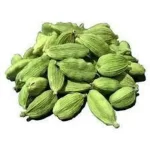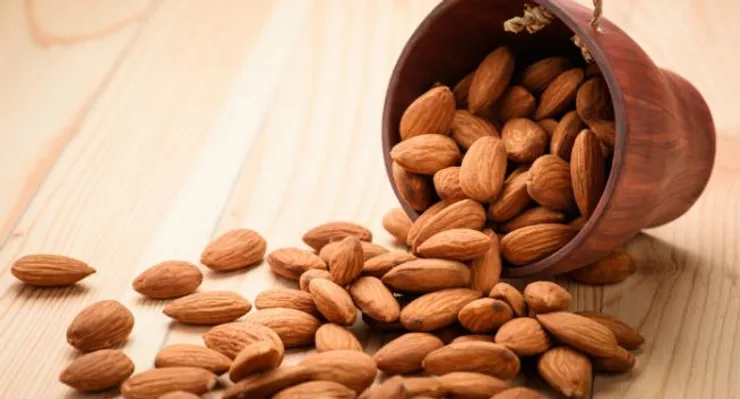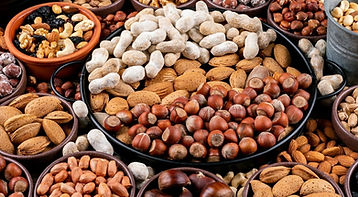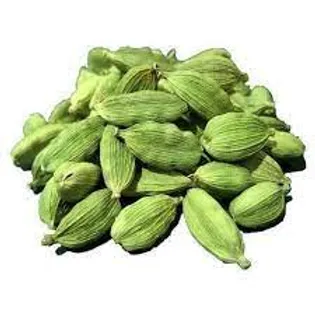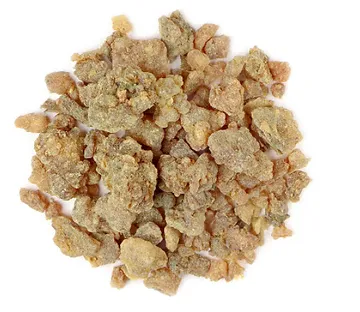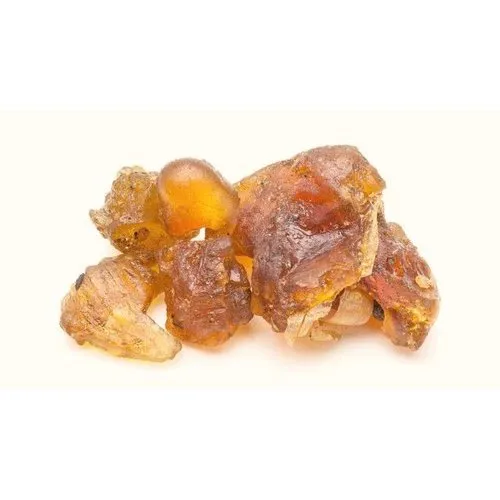-
Oct 06 2022 Amazing Health Benefits of Eating Almonds Every Day
1. IMPROVES DIGESTION Probiotic components present in almonds aid digestion, the growth of good bacteria and detoxification of the body. It helps balance the body’s pH, which is important for proper digestion and preventing the risk of diseases. 2. PREVENTS CANCER Almonds also contain fiber, which reduces the risk of colon cancer. According to a study released by the National Cancer Institute, high-fiber food lowers the chances of developing colon cancer. Flavonoids, phytochemicals and vitamin E present in almonds control the progression of cancer cells of the breast. 3. LOWERS BAD CHOLESTEROL Almonds are a great source of polyunsaturated fats and monounsaturated fats, which help in lowering the levels of bad (LDL) cholesterol. You will increase the levels of good (HDL) cholesterol by consuming almonds every day. As per a research, a decrease of 4.4 percent in bad cholesterol was observed in those who ate a handful of almonds every day as compared to 9.4 percent decrease in bad cholesterol in those who had two handfuls of almonds every day. 4. INCREASES ABSORPTION OF NUTRIENTS Your body needs sufficient amount of fat for absorption of nutrients that are fat-soluble. Almonds balance the pH of your body and decrease acid buildup. It helps in better digestion and absorption of the nutrients by the body. 5. STRENGTHENS TEETH AND BONES Rich in micronutrients like phosphorus and calcium, almonds make your teeth and bones strong, preventing conditions like osteoporosis. Eating almonds also strengthen the skeletal system. -
Oct 06 2022 3 dry fruits you should include in your diet
Rich in proteins, vitamins, minerals and dietary fibre, dry fruits make for a delicious and healthy snack. Health experts recommend eating dry fruits like apricots, walnuts and pistachios to stay healthy. Dietician Priyatama Srivastava and Purba Kalita, co-founder of an online shopping portal, suggest you include the following dry fruits in your diet. Almonds: A healthy substitute for conventional snacking options, generally high in sugar, almonds can be enjoyed anytime. Almonds are rich in anti-oxidants and have zero cholesterol. They are known to provide relief from constipation, respiratory issues and heart disorders, besides being great for hair, skin and teeth. Cashews: These nuts are loaded with health benefits and are a rich source of vitamins E and B6. What’s more? They can also be used to bring a rich texture and flavor to various dishes. Walnuts: This shelled nutty delight is extremely nutritious. It is loaded with vital Omega-3 fatty acids, dietary fibres, proteins, anti-oxidants, vitamins and miner -
Oct 06 2022 15 Health Benefits of Cardamom
Cardamom is native to the evergreen forests of India. This spice is commonly used in Indian cuisine, but it has also made its way into Ayurvedic medicine as a treatment for mouth ulcers, digestive problems, and even depression. Some of the health benefits of this peppery, citrusy spice are now making their way into modern studies. It’s well worth adding cardamom to your food for the flavor alone, but these health benefits are also something to consider whenever you break out the spices. Digestion Cardamom is related to ginger and can be used in much the same way to counteract digestive problems. Use it to combat nausea, acidity, bloating, gas, heartburn, loss of appetite, constipation, and much more. Detoxify This spice helps the body eliminate waste through the kidneys. Halitosis In India they chew cardamom after meals or whenever they need to freshen their breath. Diuretic Part of the reason cardamom is such a good detoxifier is thanks to the diuretic properties. It helps clean out the urinary tract, bladder, and kidneys, removing waste, salt, excess water, toxins, and combating infections too. Depression The science behind the antidepressant qualities of cardamom hasn’t been studied yet, but Ayurvedic medicine swears by the tea as a means to fight depression. Oral Health Apart from helping with bad breath, cardamom is used for mouth ulcers and infections of the mouth and throat. Cold and Flu This pungent spice may help prevent and relieve cold and flu symptoms. It’s also used for bronchitis and coughs. Cancer Animal studies are showing promise that cardamom protects against, inhibits growth, and even kills some cancers. Blood Pressure As a diuretic and fiber rich spice, cardamom significantly lowers blood pressure. Blood Clots Cardamom prevents dangerous blood clots by preventing platelet aggregation and the sticking to the artery walls. Antioxidant Many of the vitamins, phytonutrients, and essential oils in cardamom act as antioxidants, cleaning up free radicals and resisting cellular aging. Pathogens The volatile essential oils in cardamom inhibit the growth of viruses, bacteria, fungus, and mold. Anti-inflammatory Like ginger and turmeric, its relatives, cardamom has some anti-inflammatory properties that limit pain and swelling, especially in mucus membranes, the mouth, and throat. Hiccups Cardamom is an anti-spasmodic that can help get rid of hiccups. This also applies to other involuntary muscle spasms, like stomach and intestinal cramps. Aphrodisiac Traditional medicine lists cardamom as a powerful aphrodisiac that can help with erectile dysfunction and impotence. -
Oct 06 2022 Gum Myrrh
Since ancient times, myrrh resin has been used as an ingredient in incense and perfumes. It has a long history of folklore and spirituality in many ancient cultures, as it was used to anoint kings and scent the fabrics of pilgrims traveling to holy places. Myrrh gum resin is harvested from Commiphora myrrha, a low growing, desert tree that exudes a viscous yellow gum, which hardens into a reddish-brown resin. Myrrh resin can be employed in body care recipes, incense blends, and macerated as an extract. With its smoky, earthy scent, myrrh has a long history as a favorite among all cultures going back to its first discovery in the far reaches of time. A native to Ethiopia and Somalia, it has been used as long ago as 3000 BCE by the Egyptians in embalming, and as an incense burned during cremations and funerals to disguise any foul odors up through the 15th century. Myrrh is said to be one of the key ingredients in the mythical Egyptian perfume Kyphi. It has also been used to anoint kings, and scent fabrics for those traveling to holy places. Myrrh has had a great value throughout time; the Romans even valued it as much as gold, using it as security for monetary debts. Myrrh is a member of the Burseraceae family. It is often prepared as a tincture in Ayurvedic and Traditional Chinese Medicine herbal formulations. Used in conjunction with other ingredients for the development of many cosmetic applications and incense blends. Al Nama Herbals General Trading LLC is a premium supplier and trader of Gum Myrrh primarily based in Dubai and exporting products around to various nations. www.alnamaherbals.com https://www.facebook.com/ALNAMAHERBALS https://www.instagram.com/alnamaherbs/ https://www.pinterest.com/alnamaherbals/ info@alnamaherbals.com +971 50 462 0396 -
Oct 06 2022 Guggul Resin (Commiphora mukul)
A relative of the African myrrh tree, guggul is a soft, golden brown myrrh gum resin. An exudation from a small scrubby tree or shrub that's found in the central regions of India, it's less bitter in aroma than the hard bisabol type myrrhs from Africa and Arabia. Guggul has a warm, slightly sweet, balsamic, herbaceous, and earthy aroma with hints of vanilla. It's our preferred myrrh-type resin for many of our own incense mixtures. Well known and widely used in Ayurvedic medicine, guggul or "common myrrh" is said to rejuvenate the spirit, increase one's energy and provide an overall feeling of well being. It purifies the air and cleanses the body. It's used as incense in India in the evening to relax before retiring. Guggul is praised for its anti-inflammatory properties. Preliminary research suggests it may help treat certain anti-inflammatory conditions, such as acne, eczema, psoriasis, and arthritis. It has also been used to promote weight loss, treat hypothyroidism, and manage cholesterol and blood sugar levels. However, clinical studies supporting all of these benefits and uses are generally limited. Here’s what research says about these claims. Acne Guggul has been studied for its potential to treat acne. It has been shown to be effective in both complementary and alternative treatments for nodulocystic acne, a severe form of acne affecting the face, chest, and back . Another older study found that taking guggul orally for 6 weeks helped treat acne without causing any major adverse effects. Although the results from these studies seem promising, more up-to-date research is warranted before strong conclusions can be made. Eczema, psoriasis, and skin irritation Eczema and psoriasis are both noncontagious skin conditions that are mainly caused by inflammation of the skin. Most of the research on guggul’s ability to treat these and other skin irritations has investigated the effects of guggul extracted from the Boswellia serrata plant. Guggul-based creams have been shown to improve itchiness, redness or skin discoloration, and inflammation in people with psoriasis and eczema. A recent study also found that a guggul-based cream treated skin reactions that occurred as a side effect of radiotherapy treatment for breast cancer. It found that the guggul-based cream improved skin symptoms, such as redness, inflammation, tenderness, and pain, as well as reduced the need for topical steroid creams for treatment. Still, research is limited, and more studies are needed to confirm guggul’s purported benefits for skin health. Hypothyroidism Thyroid disorders are relatively common, especially among women. Hypothyroidism is a condition in which your thyroid gland doesn’t make enough thyroid hormones to keep your body running normally. Animal studies, some of which are dated, suggest that guggul extracts improve hypothyroidism by increasing iodine uptake and improving the activity of enzymes produced by the thyroid gland. Weight loss Guggul is often claimed to help treat obesity by promoting fat loss and suppressing appetite. However, very little high quality evidence exists to support its use for this purpose. Additional studies have shown that herbal supplements containing guggul extract may help treat obesity by promoting weight loss and reducing both skinfold thickness and body circumference. Although the results of these studies seem promising, they don’t examine the effects of guggul specifically on weight loss. Ultimately, further research is warranted to confirm the link between guggul and weight loss. Hyperlipidemia Guggul is a popular natural treatment for hyperlipidemia, which is the medical term for abnormally high cholesterol and triglycerides levels. Nevertheless, more research is needed to understand the effect of guggul on cholesterol levels in humans. Osteoarthritis Early research suggests guggul may alleviate symptoms associated with osteoarthritis. One older study in 30 people with knee osteoarthritis who were treated with guggul showed improvements in knee pain and knee swelling, as well as increased knee flexion. Diabetes You may come across claims online about guggul’s purported ability to lower blood sugar and manage diabetes. However, recent evidence is lacking, and much of the research on guggul and its effect on blood sugar levels was conducted in animals. Additionally, one recent double-blind, placebo-controlled study found guggul statistically ineffective at lowering blood sugar levels in people with type 2 diabetes. More research is needed to determine what effect, if any, guggul has on blood sugar control in humans. Disclaimer: All benefits and uses warrants further research and studies to verify the benefits of Gum Guggul. Al Nama Herbals General Trading LLC info@alnamaherbals.com www.alnamaherbals.com 132 Al Ras, Deira, UAE +971 50 462 0396



